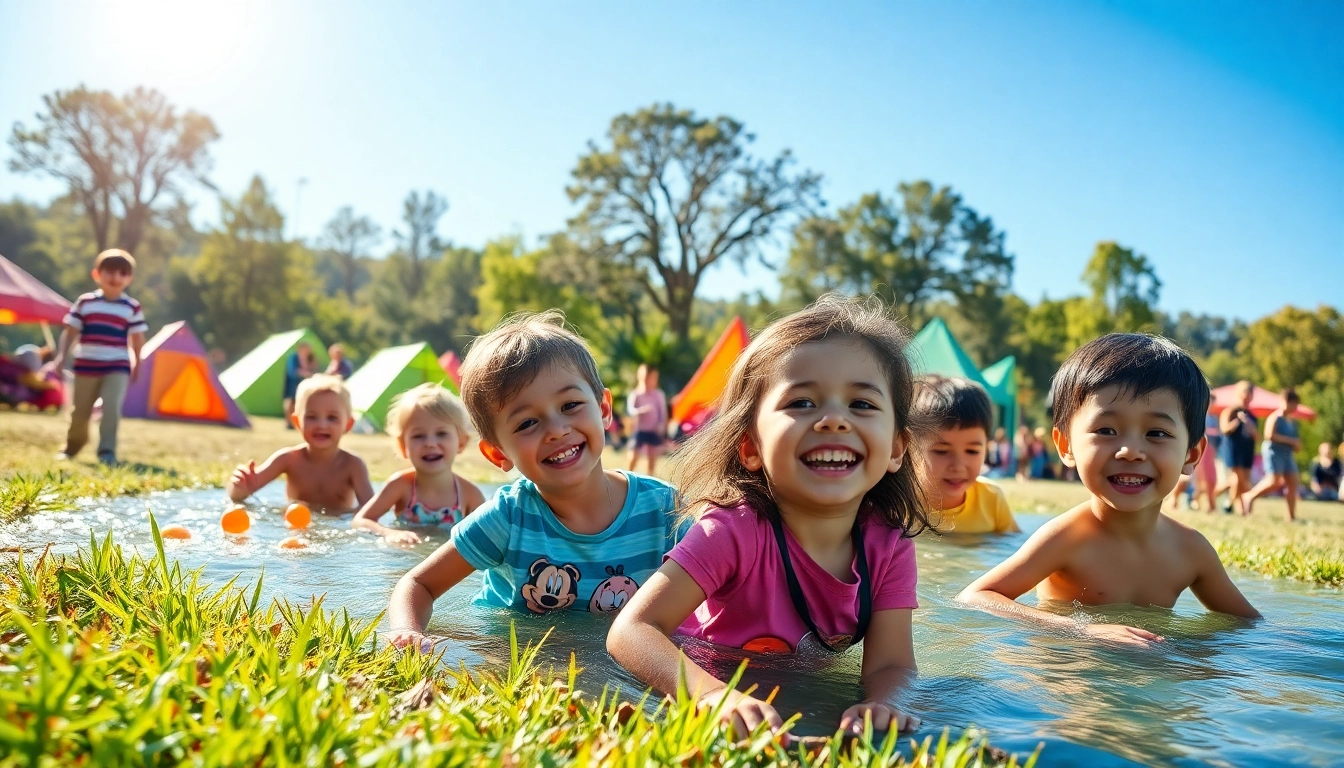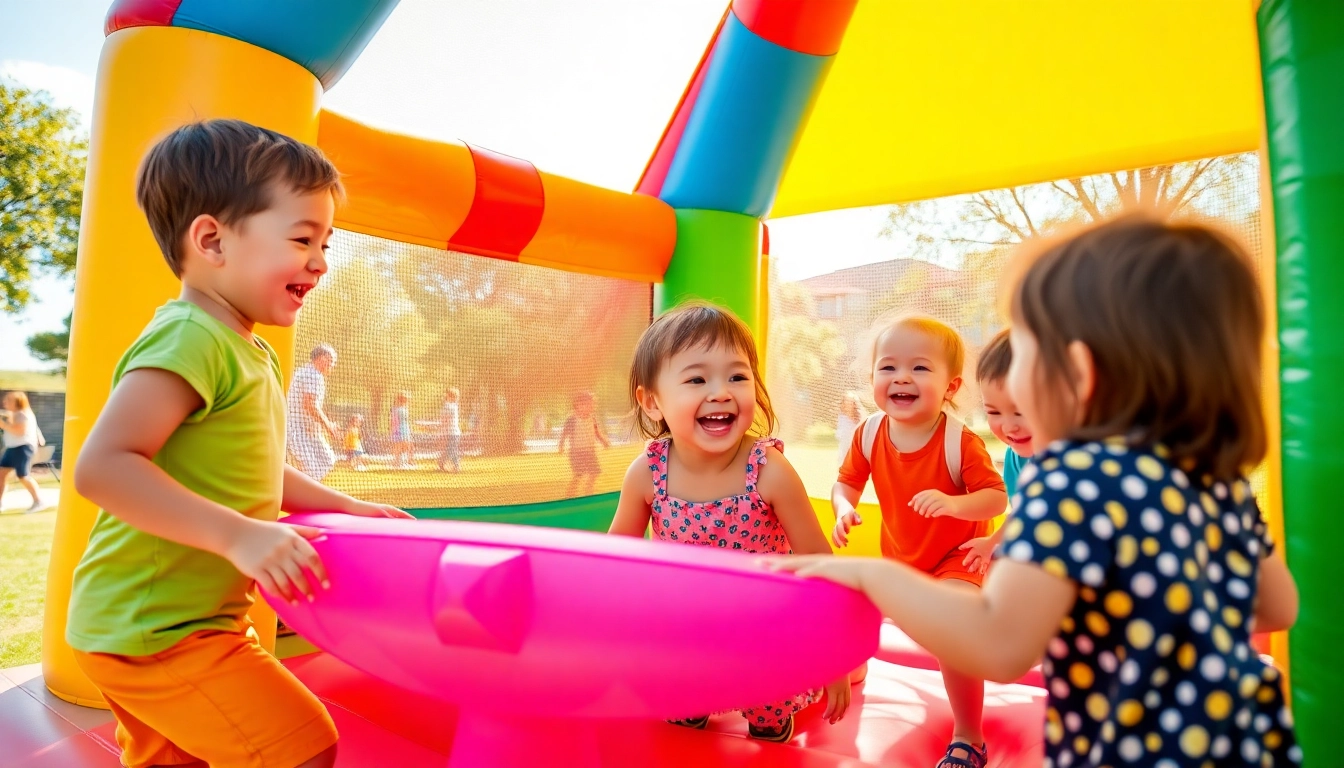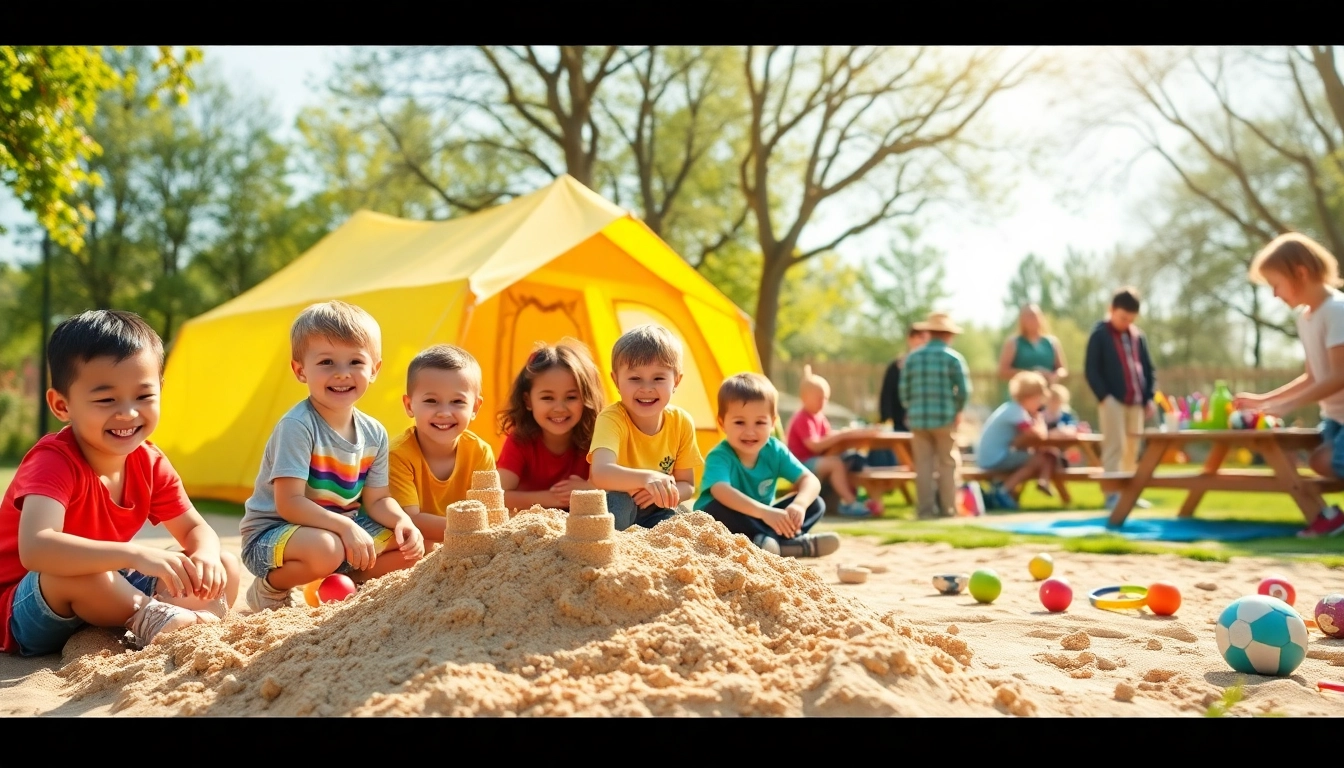Overview of Holiday Camps
Holiday camps are a popular choice for families looking to balance work and leisure, particularly during school breaks and holidays. These camps provide a structured environment where children can engage in various activities, learn new skills, and forge friendships. This article explores the multifaceted world of holiday camps, detailing their history, types, benefits, and tips for selecting the right camp for your child. If you’re considering enrolling your child in holiday camps, you’ll find extensive insights that can help inform your decision.
What are Holiday Camps?
Holiday camps typically refer to organized programs that provide structured activities during school holidays. They can range from day camps that operate within specific hours to residential camps where children stay overnight for several days or weeks. Holiday camps often offer educational and recreational activities, allowing kids to explore various interests in a safe and supervised setting. The main focus is to provide fun experiences while helping kids gain new skills, social awareness, and confidence.
History and Evolution of Holiday Camps
The concept of holiday camps traces back to the early 20th century, evolving from simple vacation lodgings to comprehensive centers offering educational and recreational programs. The first holiday camps were established in the United Kingdom, with Butlin’s being one of the most notable pioneers in the camping industry. In its early days, the emphasis was on providing an all-inclusive experience, combining accommodations, meals, and various activities under one roof. Over the decades, holiday camps have diversified, catering to different interests, age groups, and educational focuses, thus becoming more specialized.
Types of Holiday Camps
Modern holiday camps can be categorized into several types based on their focus and target demographic:
- Residential Camps: These camps involve overnight stays, typically lasting from a few days to several weeks. They’re designed for immersive experiences, allowing children to fully engage with the camp’s activities.
- Day Camps: Operated during regular daytime hours, day camps provide flexibility for working parents while still offering a wide variety of activities.
- Specialty Camps: These focus on specific interests or skills such as arts and crafts, sports, STEM, drama, or music. They offer children the chance to delve deeper into subjects they are passionate about.
- Adventure Camps: These camps provide thrilling outdoor experiences such as hiking, rock climbing, and water sports. They’re perfect for children who enjoy the outdoors and seek adventure.
- Educational Camps: Aimed at reinforcing learning outside the classroom, educational camps may incorporate science, technology, or environmental topics into their programs, merging fun with learning.
Benefits of Attending Holiday Camps
Holiday camps offer numerous benefits to children, making them not just a fun way to spend holidays but also a valuable component of childhood development.
Social Skills Development
Attending holiday camps enables children to interact with peers from different backgrounds, which is crucial for developing social skills. Through group activities, children learn teamwork, cooperation, and conflict resolution. These experiences foster lifelong friendships and improve communication skills, as children must express themselves clearly and listen to others.
Physical Activity and Health
With many camps emphasizing physical activities, children are encouraged to engage in sports, outdoor excursions, and fun games. This not only helps combat obesity and promotes overall health but also instills a love for physical exercise. Many studies show that regular physical activity contributes to better mood, improved concentration, and enhanced cognitive abilities.
Creative and Educational Opportunities
Many holiday camps integrate creative arts and educational components, allowing children to explore their interests in a structured environment. Activities such as arts and crafts, science experiments, or music lessons foster creativity and enhance problem-solving skills. Educational camps that focus on STEM (science, technology, engineering, and mathematics) can solidify concepts learned in school while making them more enjoyable through hands-on experiences.
Choosing the Right Holiday Camp
Selecting the right holiday camp for your child can be daunting due to the array of options available. Here are essential factors to consider:
Factors to Consider
- Interests: Aligning the camp’s offerings with your child’s interests ensures a more enjoyable experience. Consider what activities your child is excited about.
- Age Appropriateness: Ensure that the camp caters to your child’s age group to provide suitable challenges and experiences for their developmental stage.
- Location: Proximity is essential. A camp nearby can ease drop-off and pick-up logistics, while also allowing for emergency accessibility.
- Costs: Determine a budget and compare camps based on what they offer for the price. Be aware of additional costs such as equipment rentals or field trips that might not be included in the base price.
- Staff Qualifications: Investigate the staff-to-child ratio and the qualifications of camp counselors. Trained professionals ensure a safe and nurturing environment.
Locating Holiday Camps Near You
Finding the right camp can begin with a simple online search or by exploring local community centers. Websites dedicated to family activities, parenting blogs, and social media groups often provide recommendations. Local schools might also have bulletin boards or newsletters with listings of camps. Networking with other parents can yield invaluable insights and suggestions.
Questions to Ask Before Enrolling
Before making a commitment, consider asking the following questions:
- What is the camp’s daily schedule, and what activities are included?
- How does the camp handle dietary restrictions or allergies?
- What measures are in place to ensure safety during activities?
- Are parents allowed to visit the camp during sessions or participate in any evaluations?
- What is the camp’s policy on communication for emergencies?
Activities Commonly Offered at Holiday Camps
Activities can vary widely among holiday camps, but many programs incorporate a mix of the following categories:
Outdoor Adventures and Sports
Outdoor activities play an integral role in holiday camps, encouraging children to explore nature and develop physical skills. Popular offerings may include hiking, canoeing, team sports like soccer and basketball, and obstacle courses. These activities not only promote physical fitness but also cultivate teamwork and leadership skills as children work together towards common goals.
Arts and Crafts Workshops
Creative expression is fostered through a variety of arts and crafts workshops, giving kids the opportunity to engage in painting, sculpting, sewing, or photography. Craft activities help enhance fine motor skills and encourage imaginative thinking. These projects can lead to a sense of accomplishment as children create tangible results from their efforts.
STEM Projects and Learning Experiences
Many camps now include STEM-focused projects, allowing for experimentation and learning through hands-on activities. Children might engage in robotics, coding, environmental science experiments, or math-related challenges. These experiences can ignite interest in technology and science, paving the way for future academic pursuits.
Success Stories from Holiday Camp Experiences
Holiday camps can have a profound impact on children’s personal and social development, creating lasting memories and skills.
Personal Testimonials
Numerous parents and former campers recount heartwarming stories of growth and transformation. Many attest to how their children emerged more confident, socially adept, and willing to try new experiences. These testimonials often highlight specific memories, such as a child overcoming a fear of water while learning to swim or developing a passion for a specific hobby during a workshop.
Long-term Impact on Children
Beyond immediate benefits, the skills and friendships developed at holiday camps can have long-term effects on children’s lives. Increased confidence often carries over into academic settings, as children become more willing to participate in group projects and public speaking opportunities. Additionally, friendships nurtured at camp often establish a network of support that extends beyond the camp experience.
Community Engagement and Support
Many holiday camps foster community engagement by involving families, local businesses, and non-profits. This can manifest in open houses, family events during camp sessions, or partnerships for community service projects. Such involvement not only strengthens community ties but also teaches children the importance of giving back and supporting others.



